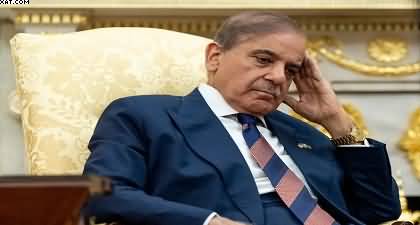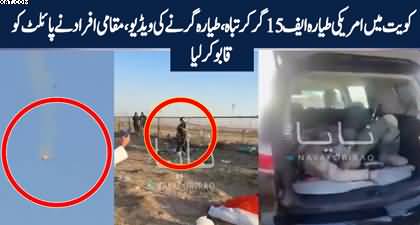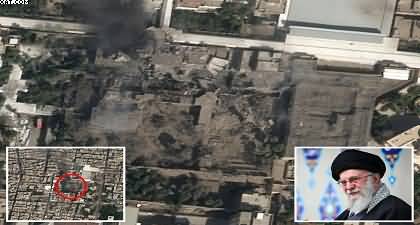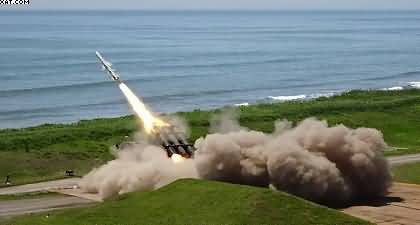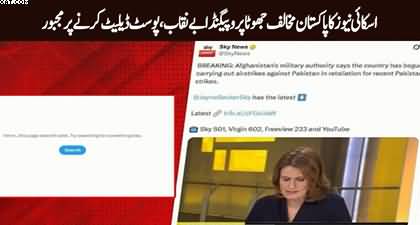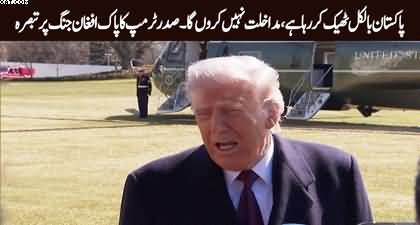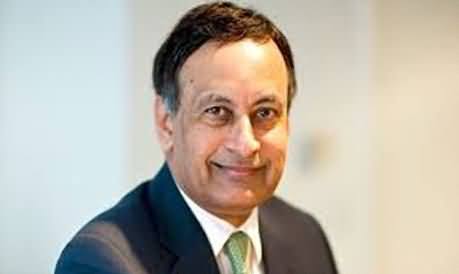
ISLAMABAD: Husain Haqqani, former Pakistan ambassador to US, has claimed in his latest book — Magnificent Delusions — that Benazir Bhutto during her visit to the United States in 1989 as the Prime Minister of Pakistan committed to Washington that Islamabad would not produce an atomic bomb.
Haqqani said the nuclear programme continued and the country was enriching uranium in violation of Pakistan’s commitment to the US, as the then tough opposition of Nawaz Sharif distracted Benazir Bhutto.
He wrote: "The United States had also learned that Pakistan was enriching uranium in violation of Zia’s promise of capping enrichment at 5 percent, and Bhutto was unable to promise that enrichment would be capped. Bush agreed to certify one last time that Pakistan did not possess nuclear weapons in return for Bhutto’s commitment that Pakistan would not produce an atomic bomb, but while the tough opposition that Sharif put up at home distracted her, Pakistan violated that commitment without her full knowledge."
He added that Benazir Bhutto asserted later that she was told about Pakistan’s nuclear enrichment programme but not informed of the exact level of enrichment.
Haqqani said during her state visit to Washington in June 1989 Bhutto received a warm welcome at the White House. She also became the only Pakistani prime minister to be invited to address a joint session of the Congress.
"The US media recognised Bhutto’s "claim on American backing" on the ground of her adherence to democracy and moderation in the Islamic world. But in private talks with US officials she realised that the Americans did not think she was fully in control, and they could not offer her any help in asserting authority."
Later the CIA analysts had concluded that Pakistan had taken the final step toward "possession" of a nuclear weapon by machining uranium metal into bomb cores.
Washington was certain that "Pakistan had crossed the line." But the then President Ghulam Ishaq Khan and the then Army Chief General Mirza Aslam Beg told the visiting Robert Gates that Pakistan’s nuclear capability had not advanced.
"Unless Pakistan melted down the bomb cores that it had produced, Gates warned, ‘Bush would not be able to issue the Pressler Amendment certification needed to permit the continued flow of military and economic aid.’ When the Pakistanis denied that they had ‘crossed the line,’ Gates commented, ‘If it waddles like a duck, if it quacks like a duck, then maybe it is a duck.’"
Then Husain Haqqani in his book ruled: "The Pakistanis had lied to Gates on both issues he raised in Islamabad. Although Bhutto was the best disposed toward the United States among Pakistan’s major power players, she did not control the levers of power. The State Department and the CIA did not see any advantage in trying to secure the Pakistan military’s subordination to an elected civilian; instead, they effectively leaned in the military’s favour by directly discussing major issues with Beg and other generals, assuming that the military could deliver on key issues of US interest—Afghanistan, nuclear weapons, and security in South Asia."
The book also reads: "In August 1990 Ishaq dissolved parliament and dismissed Bhutto’s government under presidential powers that Zia had written into the Constitution. The decision to remove Bhutto was carefully timed to minimise the possibility that Washington might speak up in her favor. The dismissal was announced four days after the Iraq invasion of Kuwait and had been engineered by the army leadership……"
"The assessment in Islamabad proved wrong. Just days before the Pakistani election, Bush refused certification, triggering sanctions on US aid under the Pressler Amendment. Bush and his advisers saw their decision as a legal matter: Pakistan had crossed the threshold beyond which verbal assurances could no longer be the basis of a presidential determination of the country’s nuclear program. Bush felt he could not lie to Congress in the presence of the overwhelming evidence US intelligence had collected. Likewise, the United States had failed to recognise that no Pakistani government could curtail the nuclear programme. Having acquired the bomb, expecting Pakistan to give it up was unrealistic; instead, this was the time for the United States to accept Pakistan’s nuclear status as a fait accompli. If nuclear weapons were Pakistan’s ultimate guarantee against its psychological fears against India, that purpose had been achieved. Rather than limiting itself to implementing the Pressler sanctions while Pakistan persisted with denial and bluster, the United States could have asked Pakistan to be honest about the nukes and then negotiated safeguards against further proliferation."
According to Haqqani, India had pursued nuclear weapons without making specific commitments to the United States because it did not accept conditional aid as Pakistan had done. Americans had repeatedly told Pakistani leaders that Pakistan could not make the bomb and get aid at the same time, and Pakistan made and broke several promises about its nuclear programme so as to keep the aid flowing. Bush had been "genuinely sad" when he could no longer certify that Pakistan did not possess a nuclear device."
Source
Top Rated Posts ....
 New York: Afghan migrant forced his way into neighbor's home and attacked him for being Pakistani
New York: Afghan migrant forced his way into neighbor's home and attacked him for being Pakistani
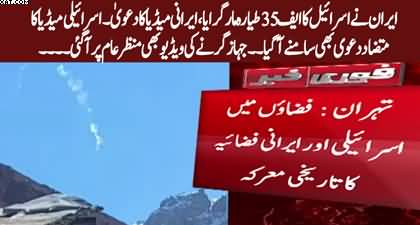 Video: Iran shoots down Israeli F-35 in historic air clash - Israeli media claims differently
Video: Iran shoots down Israeli F-35 in historic air clash - Israeli media claims differently
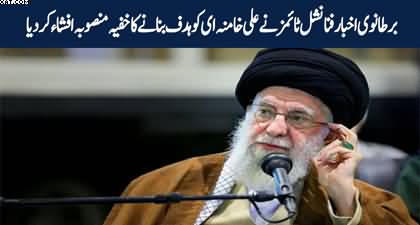 UK Newspaper reveals secret mission targeting Iran’s Supreme Leader Khamenei
UK Newspaper reveals secret mission targeting Iran’s Supreme Leader Khamenei
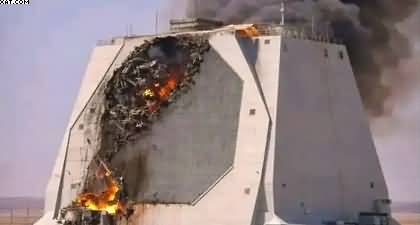 Iranian missile hits most expensive US Radar in Persian Gulf
Iranian missile hits most expensive US Radar in Persian Gulf
 Islamabad court grants Imran Khan pre-arrest bail in six cases
Islamabad court grants Imran Khan pre-arrest bail in six cases
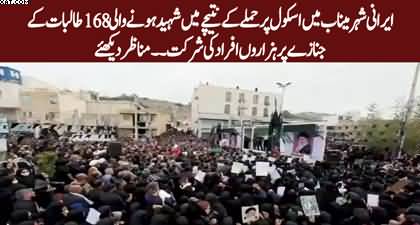 Iran holds huge funeral procession for 168 student victims of strike on Minab girls’ school
Iran holds huge funeral procession for 168 student victims of strike on Minab girls’ school

Advertisement
Popular Posts
PM Shehbaz Sharif's tweet on Ayatollah Seyyed Ali Khamenei's killing
Views 912 | March 01, 2026Exclusive Footage: US F-15 Aircraft goes down in Kuwait, Locals grabbed the pilot
Views 873 | March 02, 2026Video shows how Ayatollah Khamenei's compound was targeted by Israel
Views 743 | March 01, 2026Breaking News: Iran fires four ballistic missiles towards U.S. Naval Abraham Lankan fleet
Views 722 | March 01, 2026New York: Afghan migrant forced his way into neighbor's home and attacked him for being Pakistani
Views 682 | March 04, 2026Sky News' false anti-Pakistan propaganda exposed, forced to delete the post
Views 638 | February 27, 2026Video: Iran shoots down Israeli F-35 in historic air clash - Israeli media claims differently
Views 627 | March 04, 2026UK Newspaper reveals secret mission targeting Iran’s Supreme Leader Khamenei
Views 622 | March 03, 2026Iranian missile hits most expensive US Radar in Persian Gulf
Views 589 | March 04, 2026Pakistan is doing very well - President Donald Trump on Pak-Afghan conflict
Views 584 | February 28, 2026Comments...

